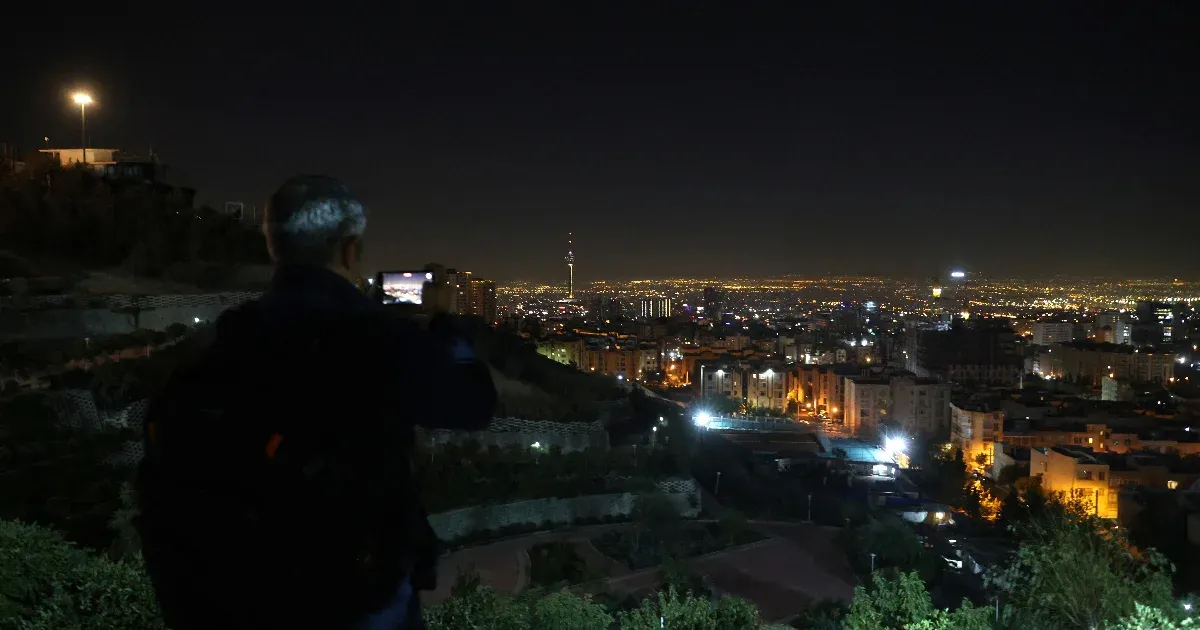- Israel carried out several waves of airstrikes against Iranian targets early Saturday morning local time.
- According to Israel, it targeted and hit missile production centers and anti-aircraft batteries. Iran says the Israeli missiles caused little damage.
- The United States took note of the Israeli attack, stressing that Israel wanted to prevent further Iranian attacks.
- The precedent for the Israeli action is that Iran fired hundreds of rockets at Israel on October 1 and before that in April.
Israel carried out targeted airstrikes against military targets in Iran between 3:30 am and 5:30 am local time, cites a spokesman for the Israeli army was quoted by the BBC. Daniel Hagari added that Israel has the right and duty to respond to the attacks on the country, which came from Iran and its allies in the region.
“We have fully mobilized our defensive and offensive capabilities,” the army said in a statement. “We will do everything necessary to protect the State of Israel and the people of Israel.” Israeli airstrikes hit about 20 sites, according to officials who spoke to the Times.
“Israel has wide latitude to carry out actions in Iran. Iran launched a strike against Israel twice…it paid the price” – quoted Hagarit a Times of Israel.
According to the BBC, explosions were heard in the western and southern parts of Tehran, the capital of Iran. According to the leadership in Tehran, the Israeli attack did not cause significant damage. The Guardian also published footage of Iranian air defenses in action, destroying Iranian missiles:
A New York Times Iranians reported the sound of explosions in Isfahan and in the country’s Kurdistan region. Iran is suspending its air traffic, and fear is felt among its population, according to the BBC.
The United States indicated that it had nothing to do with the attacks on Iran, and that US Defense Secretary Lloyd Austin called his Israeli counterpart, Joav Gallant. It is important to mention that Washington has signaled to Israel in recent weeks that it should avoid attacks on Iran’s oil and nuclear infrastructure.
According to the current information, the attack did not even target such objects. Although Washington warned against the escalation of the war in the region, the American official reactions essentially acknowledged the fact of the Israeli attack, stressing that the attack was over – he wrote a Times of Israel.
The United States, which is facing presidential elections, wants to avoid escalation in the Middle East, where after the bloody attack by Hamas in October last year, Israel launched a retaliatory strike in Gaza to eliminate the armed organization, and then took action against Lebanon’s Hezbollah after the Iranian-backed Shiite terrorist organization also activated itself, firing rockets into the northern part of Israel. During the year, rockets were launched towards Israel from Iran and Yemen’s Houthi militias, which also enjoy its support, so the risk of further expansion of the war exists with each counterstrike. This is what the United States wanted to dismantle with its reaction, which confirmed the Israeli attack, but its central message was that this was the end of the exchange of blows between the two countries.
The reason for the current attack is that on October 1, Iran fired hundreds of ballistic missiles against Israel, which, although they did not cause much damage, provoked the state, which has been at war since October 7, 2023, to counterattack. The Iranian authorities indicated that no major damage was caused by the Israeli attacks. According to the AFP and Reuters news agencies, explosions were also heard in southern and central Syria at dawn on Saturday, but Israel did not admit that it had anything to do with them.
Israel warned Iran in advance
According to Israel’s official report, the operation targeted Iranian missile factories and air defense batteries and the attack achieved its goal, so it ended there. The question is, however, whether this time Tehran will claim that it is carrying out a retaliatory strike following the attack. Al Jazeera according to Anticipating this, Israel announced that if Iran were to do so, the Israeli forces would respond again.
A New York Times according to the Soviet-designed Sz-300 missile system protecting the Tehran airport was also hit. The first wave of the morning action targeted the anti-aircraft batteries, the second two waves concentrated on objects producing ballistic missiles.
Through intermediaries, Israel already indicated to Iran on Friday that it would carry out a limited attack and called on Tehran not to retaliate against them – after all, the Israeli action was a response to the previous Iranian attack – in order to avoid a continuous exchange of blows – he wrote the Axios.
The Iranian leadership said it was a “complete lie” that a hundred Israeli fighter jets had taken part in the attack – he wrote Iran’s semi-official news agency. The report of Tasnimnews highlighted that the objects of the Iranian Revolutionary Guard were not attacked either. Citing unnamed sources, he also wrote that Tehran has every right to retaliate and plans to do so.
However, Iran does not appear to be planning an immediate response, according to the Times of Israel, citing the Iranian news agency he announcedthat the stopped air transport in Iran will soon start again, but also that, according to Tehran, the damage caused by the Israeli attack is not significant.


![Shopping Sundays 2024. How are stores open on Sunday [27.10.2024]? Shopping Sundays 2024. How are stores open on Sunday [27.10.2024]?](https://cdn.galleries.smcloud.net/t/galleries/gf-KgTz-Ahmh-WkCF_ceny-zniczy-i-chryzantem-na-wszystkich-swietych-sprawdzilismy-ile-kosztuja-1920x1080-nocrop.jpg)